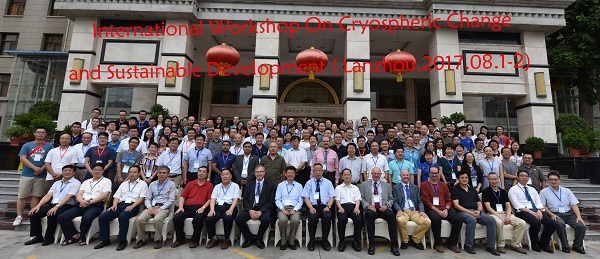"International Workshop on Cryospheric Change and Sustainable Development" was successfully held in Lanzhou, Gansu, from August 1 to 2. The symposium was jointly organized by Tsinghua University Department of Earth System Science, Northwest Institute of Eco-Environmental Resources (CAS) and other units of the Chinese Academy of Sciences, and the State Key Laboratory of Frozen Circle Science.
Academician Qin Dahe, Academician Yao Tandong and Academician Zhang Renhe and more than 200 experts and scholars from more than 10 countries from China, the United States, Switzerland, Finland, Iceland, Nepal, Brazil, Mongolia, Bangladesh and Pakistan attended the seminar. There are 1 main venue and 4 special sessions, and 87 academic exchange reports are arranged. Participants were closely focused on the four themes of sustainable development: the process and mechanism of the cryosphere, the causes and effects of the cryosphere, the function of the cryosphere and crying remote sensing and information integration.

The frozen circle science takes the ice, snow and frozen soil of nature as the research subject. The cryosphere is the layer that suffers the most severe impacts of climate warming, especially in the rapid decline in global glaciers, the rapid reduction of snow in the Arctic sea ice and the northern hemisphere, and thickening of the permafrost activity. At the same time, the cryosphere also have a significant impact on the natural system and socio-economic system through the material and energy exchange with other layers. Cryosphere science has become one of the most active areas of global change and sustainable development research, and has received unprecedented attention. In 2016, the Chinese Society for Science and Technology approved the establishment of the Chinese Society of Cryosphere Science (CSCS). Tsinghua University is one of the joint sponsors and members.